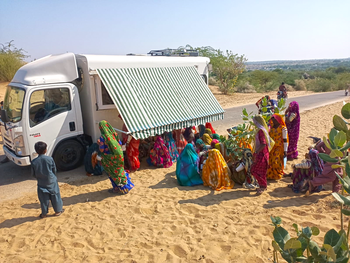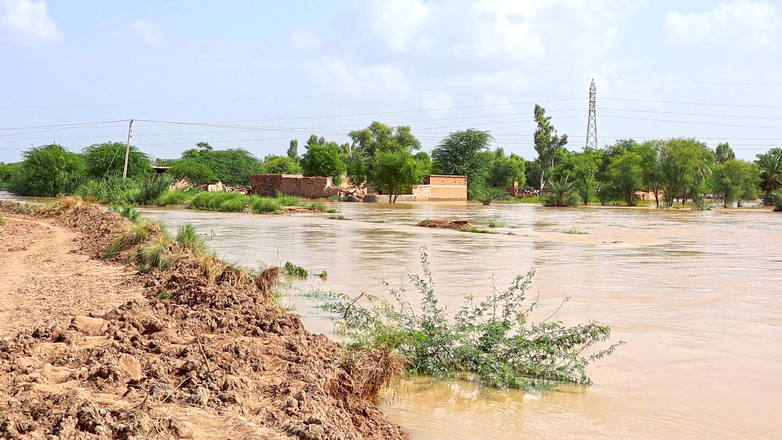Working to improve adaptive social protection in Pakistan
Adaptive Social Protection in Pakistan
-
Client
European Union (EU), German Federal Ministry for Economic Cooperation and Development (BMZ)
-
Country
-
Political sponsors
More
-
Runtime
2023 to 2027
-
Products and expertise
Social development

Context
Pakistan’s population is increasingly feeling the impacts of climate change. More than 33 million people were affected by the floods of 2022. Those living in poverty or at risk are particularly vulnerable because their livelihoods heavily rely on agricultural activities, which are increasingly threatened by the adverse effects of climate change.
The Government of Pakistan has made significant efforts to establish a social protection system in the last 15 years. Further efforts are needed to make social protection more adaptive and inclusive by improving access to programmes and integrating them into disaster management. This can improve resilience before, during and after climate-related shocks.
 © GIZ / Farman Nawaz
© GIZ / Farman NawazObjective
The institutional, financial, and technical conditions for implementing adaptive and gender-transformative social protection in Pakistan have improved.
Approach
The project contributes to developing capacities and improving capabilities and promoting organisational development in Pakistan, as well as achieving better coordination and policymaking across executing agencies and programmes. It operates in five areas:
- Strengthening the institutional and financial foundations of the adaptive social protection system
- Providing better access to adaptive social protection programmes especially for women
- Improving technical and institutional conditions for regular data exchange on planning and implementing adaptive social protection programmes
- Integrating social protection into disaster management practices
- Promoting social protection programmes for climate change adaptation.
Last update: March 2025





